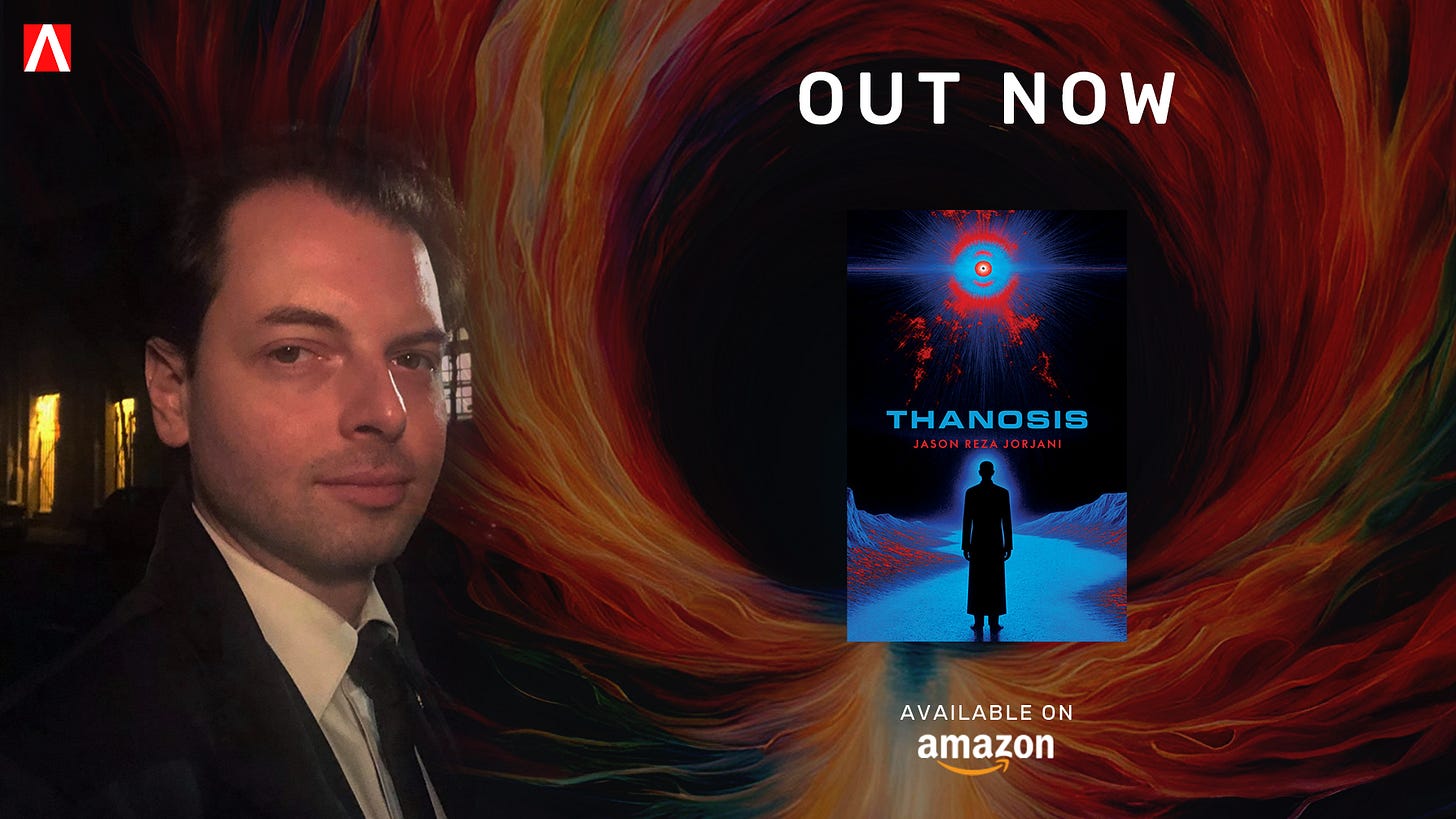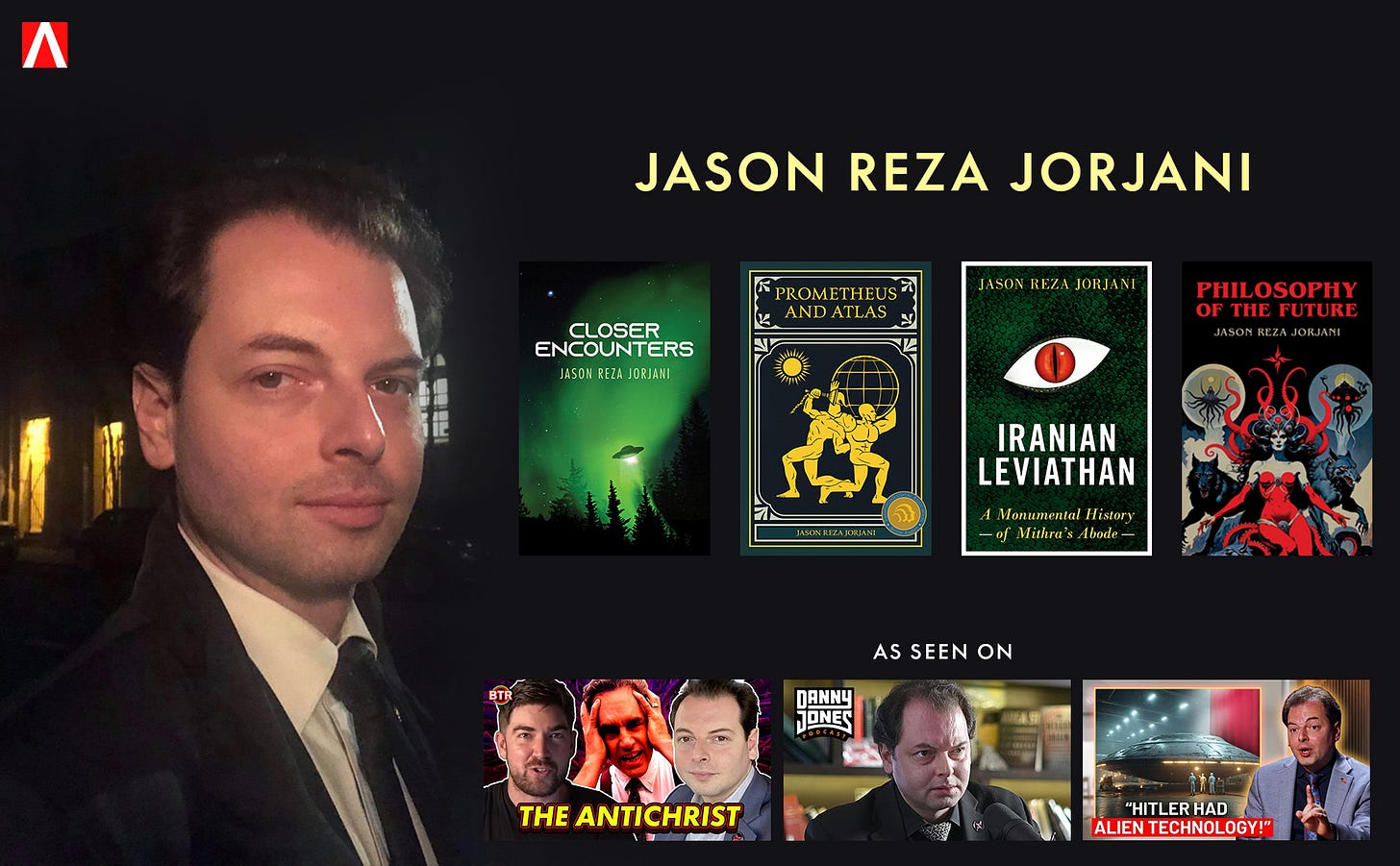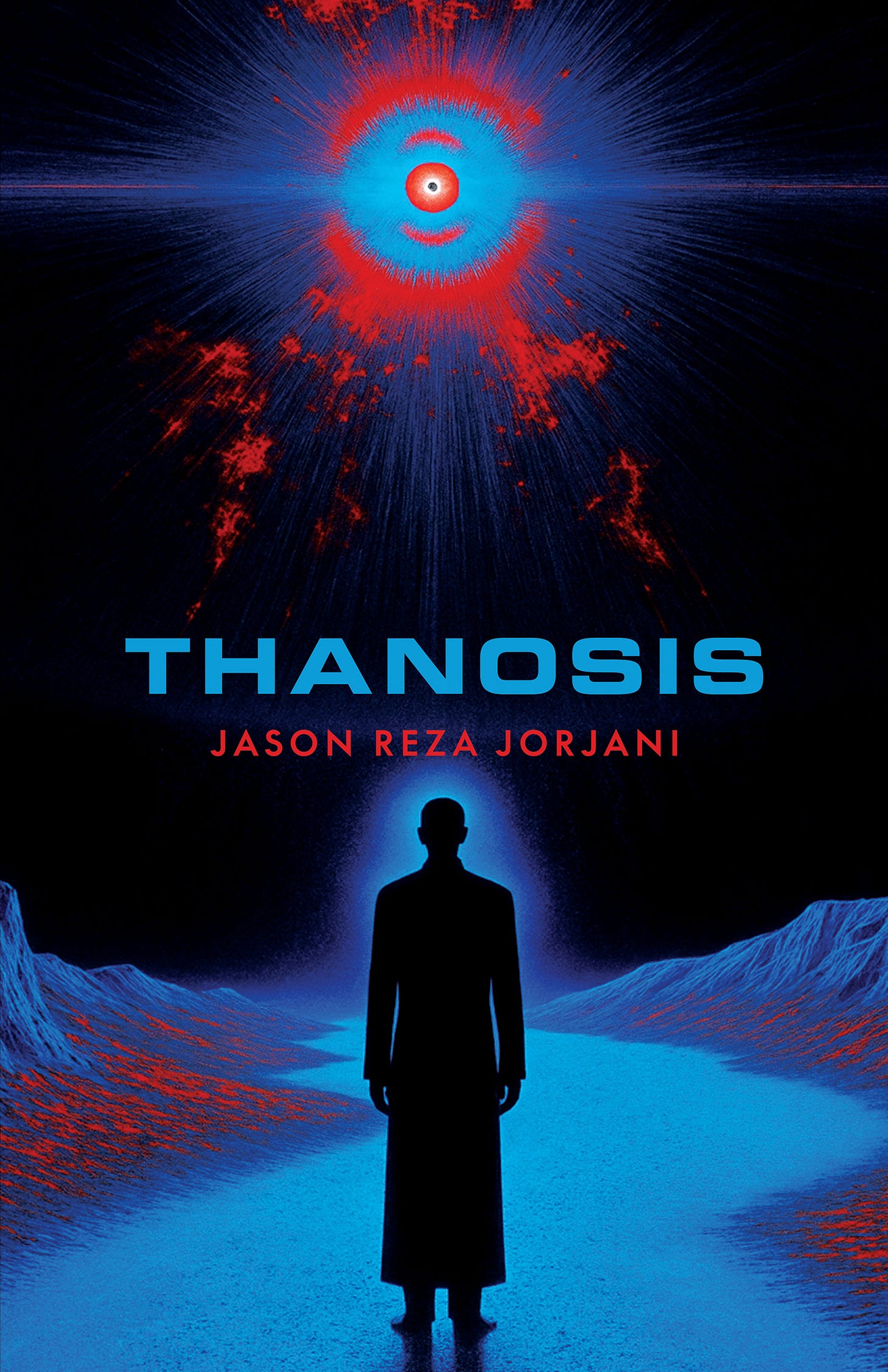OUT NOW: Thanosis
by Jason Reza Jorjani
In Thanosis, Jason Reza Jorjani presents a radical philosophical investigation of life after death, integrating parapsychological data with an ontological framework. Rejecting both materialist annihilation and monistic idealism, he affirms a Jamesian pluralism: consciousness as a battlefield of wills where individuality, freedom, and creative agency endure beyond death. Engaging with more than a century of parapsychological research and earlier survival studies, Jorjani critiques both idealism and epistemic impasse, proposing instead a pluralistic panpsychism that gives meaning to survival in a way that preserves personal agency.
Across the chapters of Thanosis, Jorjani explores the distinction between reincarnation and possession with a view to the question of personal identity; he exposes the “afterlife” as a psychotronic prison system extracting “loosh” from souls; and he advances a computational ontology in which the soul is software within a quantum information processing system. Reinterpreting religious eschatologies through this lens, Jorjani reframes liberation as Promethean authorship over one’s informational pattern.
The book culminates in a program of postmortem training and psychotronic technologies — techniques for lucid navigation and self-engineering. With these tools, we can transcend the archontic system and transform death into a domain of spiritual mastery and creative freedom.
“This book has therefore been less a defense of survival than a declaration of war against every conception of survival that would reduce us to fodder for loosh farming. The afterlife is real, but it is not benign by default. It becomes worthy only where freedom is asserted, where lucidity is cultivated, where the Promethean refuses the tunnel and remembers.
The ultimate enemy is not death but the thanotic machinery that would turn death from a gateway into a trap door. Against this, we must become engineers of our own destiny beyond the death of one or another body.”
From the Conclusion:
If there is a single thread binding together the labyrinthine investigations of this book, it is the insistence that survival must not be conceived as a passive continuation, but rather as an active project of sovereignty. To ask whether something of us persists after death is to pose the wrong question. What survives is not in doubt—thousands of cases across cultures and centuries testify to it. The real question is: what survives, in what form, under what conditions, and with what degree of agency? Thanosis has been my attempt to reframe survival from the sentimental consolations of religion and the evasions of idealist metaphysics into the hard and urgent discipline of Promethean freedom…
At the heart of my Philosophy of the Future lies the recognition that Being itself is spectral. To say that Being is spectral is to deny the ultimacy of every binary that has organized metaphysical thought since the Greeks: life versus death, spirit versus matter, truth versus illusion, natural versus artificial. The afterlife is not an “otherworld” opposed to this one, but a dimension of the spectrum of existence that interpenetrates the visible world at every point. What parapsychology has shown, through rigorously controlled studies of telepathy, precognition, and mediumship, is that the psyche is not localized in the brain but is distributed across the informational field of the cosmos itself.
Survival of consciousness after bodily death is not a miraculous exception to nature; it is an ontological disclosure of the spectral essence of nature . If psyche persists beyond the organism, then life and death are revealed to be phases of a continuum. The human being is not an encapsulated subject trapped in a decaying body but a spectral node in an informational cosmos —one that can reconfigure, reincarnate, or persist in other dimensions of experience. Recognition of this truth would constitute the most radical ontological revolution in history, one that makes Copernicus and Darwin appear as mere preludes.
The Spectral Revolution is thus not only an epistemological and political upheaval — it is also a technological one. It demands that we develop Psychotronics not as curiosities or weapons, but as Promethean tools to consciously guide our evolution. If we fail to do so, others will — and they will use them to enslave us, reducing human beings to mere standing-reserve in a spectral Matrix.
At the deepest level, the Spectral Revolution is an eschatological event. To validate the afterlife scientifically is to end the reign of death. Not that death will cease as a biological process, but it will no longer be experienced as the ultimate horizon of existence. The terror of death has been the foundation of religion, morality, and politics for millennia. Its collapse would mean the collapse of every order founded on it. But the end of death is also the beginning of true freedom. If consciousness persists, then each of us is already spectral, already more than mortal. To know this is to stand within history as Prometheus, unbound at last, bearing fire from beyond the grave. The afterlife is not a static heaven or hell, but a frontier of exploration, an open horizon of becoming. Psychotronics is the vessel with which we can navigate that frontier, the craft that allows us to cross the threshold and return with knowledge.
The significance of the afterlife for the Spectral Revolution, then, is nothing less than the disclosure of humanity’s superhuman destiny. To recognize that psyche persists beyond the body is to realize that evolution does not end with death, that our becoming is not bounded by biology but continues into spectral dimensions. This recognition is the very essence of the Philosophy of the Future: a philosophy that dares to affirm the spectral as the matrix of our freedom, and to wield Psychotronics as the craft by which we transfigure ourselves into architects of a world where life and death, matter and spirit, technology and magic, are revealed as moments of a single spectral continuum.






Poorly constructed non-argument. Next.
You are were I was 6 months. Now I'm past myself and you are remedial.